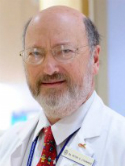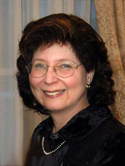Human granulocyte colony-stimulating factor in children with high-risk acute lymphoblastic leukemia: A Children's Cancer Group Study Journal Article
| Authors: | Heath, J. A.; Steinherz, P. G.; Altman, A.; Sather, H.; Jhanwar, S.; Halpern, S.; Pieters, R.; Shah, N.; Steinherz, L.; Tannous, R.; Terry, W.; Trigg, M. E. |
| Article Title: | Human granulocyte colony-stimulating factor in children with high-risk acute lymphoblastic leukemia: A Children's Cancer Group Study |
| Abstract: | Purpose: To investigate the effect of granulocyte colony-stimulating factor (G-CSF) on hematopoietic toxicities, supportive care requirements, time to complete intensive therapy, and event-free survival (EFS) and overall survival (OS) in children with high-risk acute lymphoblastic leukemia (HR-ALL). Patients and Methods: A total of 287 children with HR-ALL were randomly assigned to intensive chemotherapy regimens (New York I [NY I] or NY II) as part of the Children's Cancer Group (CCG)-1901 protocol. The induction phases consisted of five drugs (vincristine, prednisone, L-asparaginase, daunorubicin, and cyclophosphamide). Initial consolidation comprised six-agent chemotherapy combined with 18 Gy of total-brain irradiation. Patients were randomly assigned to receive G-CSF (5 μg/kg/day) during either induction or initial consolidation. A crossover study analysis was done on the 259 patients who completed both phases of therapy. Results: The mean time to neutrophil recovery (≥ 0.5 × 109/L) was reduced with G-CSF (16.7 v 19.1 days, P = .0003); however, patients who received G-CSF did not have significantly reduced episodes of febrile neutropenia (149 v 164, P = .41), positive blood cultures (57 v 61, P = .66), or serious infections (75 v 79, P = .62). Hospitalization (14.0 v 13.9 days, P = .87) and induction therapy completion times (NY I, 30.3 v 31.3 days, P = .11; NY II, 33.4 v 32.3 days, P = .40) were not significantly altered. There were no differences in 6-year EFS (P = .24) or OS (P = .54) between patients receiving or not receiving G-CSF on CCG-1901, NY I and NY II. Conclusion: Children with high-risk ALL do not appear to benefit from prophylactic G-CSF. © 2003 by American Society of Clinical Oncology. |
| Keywords: | survival; adolescent; adult; cancer chemotherapy; cancer survival; child; controlled study; preschool child; treatment outcome; child, preschool; survival analysis; major clinical study; prednisone; clinical trial; neutropenia; cancer risk; drug efficacy; cancer radiotherapy; radiation dose; cytarabine; methotrexate; brain radiation; antineoplastic agent; controlled clinical trial; infection; randomized controlled trial; antineoplastic combined chemotherapy protocols; drug administration schedule; cyclophosphamide; vincristine; drug effect; acute lymphoblastic leukemia; high risk patient; risk assessment; febrile neutropenia; hospitalization; neutrophil; infant; multicenter study; chemically induced disorder; daunorubicin; medical society; remission; remission induction; asparaginase; hematopoiesis; neutrophils; acute lymphocytic leukemia; drug administration; recombinant granulocyte colony stimulating factor; crossover procedure; granulocyte colony stimulating factor; granulocyte colony-stimulating factor; tioguanine; blood culture; cross-over studies; leukemia, lymphocytic, acute, l1; humans; human; male; female; priority journal; article |
| Journal Title: | Journal of Clinical Oncology |
| Volume: | 21 |
| Issue: | 8 |
| ISSN: | 0732-183X |
| Publisher: | American Society of Clinical Oncology |
| Date Published: | 2003-04-15 |
| Start Page: | 1612 |
| End Page: | 1617 |
| Language: | English |
| DOI: | 10.1200/jco.2003.07.129 |
| PUBMED: | 12697887 |
| PROVIDER: | scopus |
| DOI/URL: | |
| Notes: | Export Date: 12 September 2014 -- Source: Scopus |
Altmetric
Citation Impact
BMJ Impact Analytics
Related MSK Work






